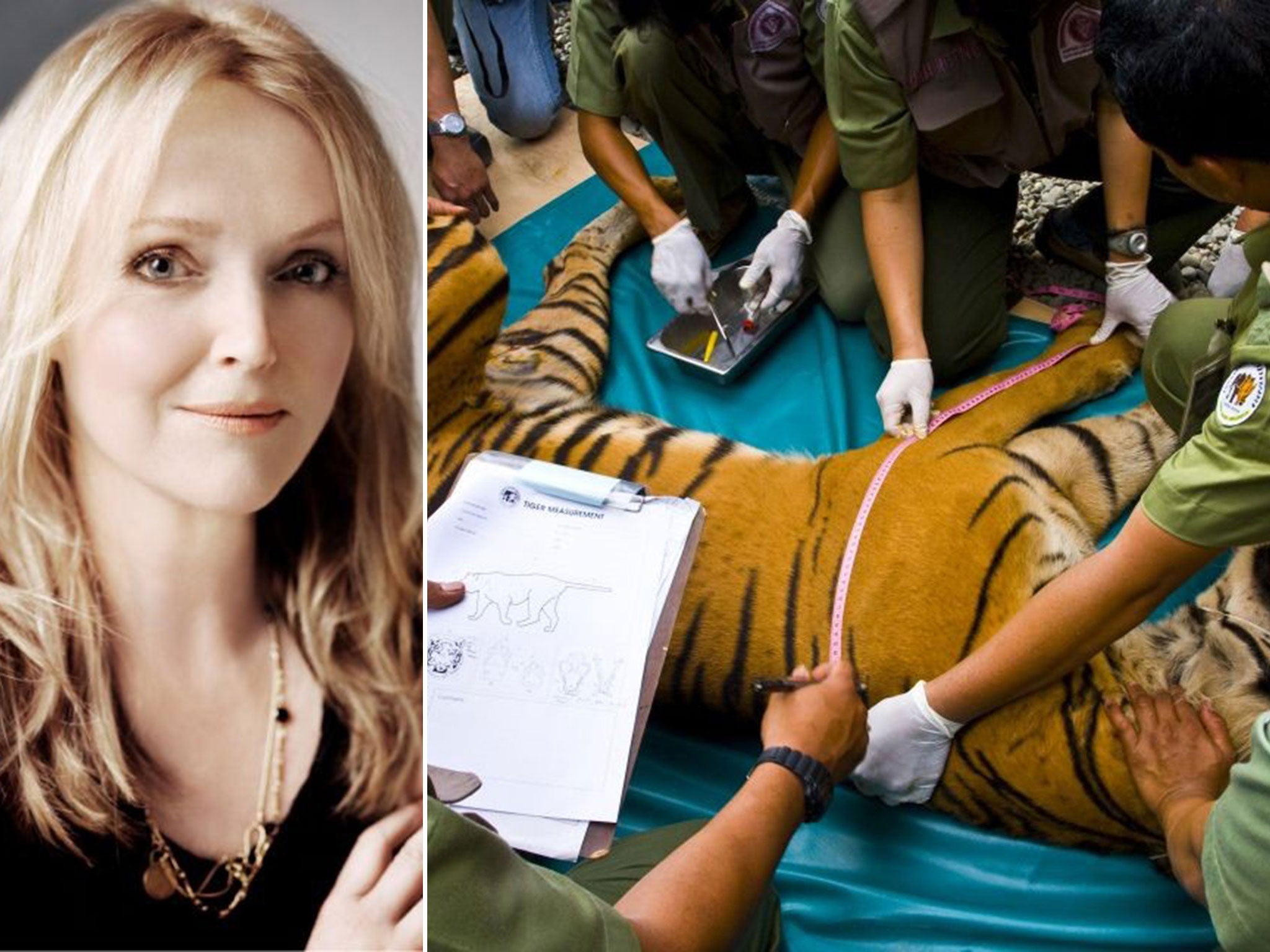Save the tiger: Good intentions are not enough... we need data
Governments and conservationists are committed to the goal of doubling their numbers to more than 6,000 by

Tigers are one of the most graceful, beautiful and majestic animals on Earth. Our living planet has many wonders, which many of us cherish. Without always realising it, people depend on the tiger and the role it plays in helping to maintain a healthy, balanced ecosystem in those areas where it lives. Without tigers, deer and wild boar populations would boom, meaning that forests would not fully regenerate – they eat a lot of vegetation, as we have seen with deer in Scotland and sheep in Wales. Vegetation composition would change and this would affect many other species. The forests are important for people as well as wildlife, who depend on them for food, fuel, water resources and other non-timber forest products such as fruit and nuts. The forests provide livelihood opportunities and are of cultural and spiritual importance to communities. For sure, our world would be a poorer place without wild tigers.
In St Petersburg in November 2010, 13 tiger-range governments, together with partners in tiger conservation, committed to the goal of doubling wild tiger numbers to more than 6,000 by 2022 (Tx2 for short). This is WWF's goal, but, most importantly, it's a shared goal among these governments and others. This is the most ambitious and visionary species-conservation goal ever set.
Before 2010, no other species had achieved this global attention, especially with governments committing to this kind of target – and this seems to have really propelled tiger conservation efforts. So, in 2016, it will be the halfway point towards this goal, and we need to know if these efforts are making a difference. Are tiger numbers increasing? Back in 2010, wild tiger numbers were estimated to be as few as 3,200. However, estimating wild tiger numbers must be a difficult task – they are not easy to find, as some of us discover when visiting a tiger reserve or national park hoping to catch a glimpse of one....
Tigers are wide-ranging, solitary, secretive animals that live mainly in Asia's most remote and inaccessible areas. It is an astonishing fact that tigers can be identified by their unique markings, but there are also other methods which can be used to estimate numbers.
Since 2010, countries such as India and Nepal have undertaken tiger surveys to monitor progress while others, such as Malaysia and Indonesia, have no idea of their tiger numbers. In these places they could be decreasing further without us realising and therefore without giving us the chance to take urgent action in time.
Last year, on World Tiger Day, the government of Nepal announced that its recent survey found that tiger numbers had increased by more than 60 per cent since 2009 – from around 120 to around 200. This indicates that things are working in Nepal and that it is possible to strive towards this big goal of doubling numbers. We're also seeing positive results in India. Countries need to count their tigers, as a priority, so that in 2016, we will be able to see if we are heading in the right direction and taking the right action. In places where tigers are still struggling to recover, a tiger count will tell us where increased effort is needed to protect them, and we need to do this before it's too late.
So, thanks to The Independent and The Independent on Sunday for their continued care and concern for the environment and specifically this week-long campaign on this most urgent of issues.
Miranda Richardson is a WWF-UK ambassador
How to help:
Text: TIGER 70060 to make a £3 donation
Telephone: 0844 7360036
To adopt a tiger: bit.ly/WWFAdopt
To donate to WWF Russia: wwf.org.uk/protecttigers
This is a charity donation service. Texts cost £3 plus one message at your standard network rate (age 16+; UK mobiles only). The WWF will receive 100 per cent of your £3 gift. The WWF may contact you again in future. If you would prefer it not to call, please text NOCALL WWF to 70060. If you would prefer not to receive SMS messages from the WWF, please text NOSMS WWF to 70060. If you wish to discuss a mobile payment call 0203 282 7863. Except for the Adopt a Tiger programme, donations made through the provided links and telephone number will go towards the WWF’s tiger projects in the Russian far east. For more details, visit wwf.org.uk/tigerterms. WWF UK, charity registered in England, number 1081247, and in Scotland, number SC039593.

Join our commenting forum
Join thought-provoking conversations, follow other Independent readers and see their replies
Comments